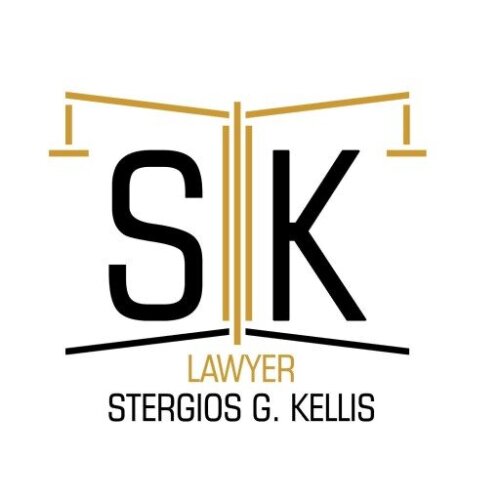Best Land Use & Zoning Lawyers in Xanthi
Share your needs with us, get contacted by law firms.
Free. Takes 2 min.
Free Guide to Hiring a Real Estate Lawyer
List of the best lawyers in Xanthi, Greece
About Land Use & Zoning Law in Xanthi, Greece
Land use and zoning law in Xanthi governs how land and buildings may be used, developed and altered within the municipal and regional boundaries of Xanthi. These rules come from a combination of national planning statutes, regional and local zoning plans, building regulations and sectoral protections such as environmental and archaeological rules. The purpose of the regulatory framework is to manage growth, protect public health and safety, safeguard natural and cultural heritage, and ensure that land development follows coordinated technical and legal standards.
In practice this means that whether you own land, plan to build, change the use of a property, subdivide a parcel, open a business or contest a municipal decision, you need to understand the applicable zoning category, the permitted uses, the building allowances - such as maximum built area and height - and any special restrictions that apply to forests, wetlands, archaeological sites or coastal areas in Xanthi and the surrounding Rhodope region.
Why You May Need a Lawyer
Land use and zoning matters often involve complex administrative procedures, technical requirements and competing public interests. A lawyer can help you in many situations, including:
- Applying for or appealing building permits and use permits when an application is rejected or delayed.
- Challenging or defending against enforcement actions and fines for alleged illegal construction or unauthorized land use.
- Resolving boundary and title disputes, or problems identified in the Hellenic Cadastre records.
- Navigating environmental and archaeological clearance processes, especially where Natura 2000 zones, wetlands, coastal areas or protected forests are involved.
- Negotiating with municipal planning authorities, government agencies and neighboring landowners.
- Handling complex development projects that require multiple approvals - for example environmental impact assessments, public consultations and sectoral permits.
- Advising on property transactions where zoning constraints affect value, permitted use or development potential.
Local Laws Overview
Key elements to understand about local land use and zoning law in Xanthi include the following:
- Zoning Categories and Allowed Uses: Municipal zoning plans set categories such as residential, commercial, industrial, agricultural and special-use zones. Each category lists permitted activities and uses, and some uses are allowed only with special permits.
- Building Parameters: For each zone there are technical controls including building coverage ratio, floor area ratio or development coefficient, maximum building height, required setbacks from boundaries and building lines, and minimum open space requirements.
- Permits and Approvals: Most new construction, alterations that change a building's structure or use, and subdivision require a building permit from the municipal building authority. Larger projects may also require environmental assessment and additional sectoral permits.
- Environmental and Protected Areas: Parts of the Xanthi region include environmentally sensitive areas, wetlands and Natura 2000 sites, and the Nestos river delta and Rhodope foothills may impose additional restrictions. Projects in these areas frequently require environmental assessments and clearance from environmental authorities.
- Archaeological Protections: Greece has strong legal protections for archaeological heritage. The Ministry of Culture and its regional Ephorate of Antiquities must be consulted where construction may affect archaeological remains. Delays, modifications or prohibitions may follow where heritage is present.
- Forest and Agricultural Land Rules: Forest land and classified agricultural land face strict limits on conversion and construction. Special procedures apply to change land category or to obtain exceptions, and penalties for illegal activity can be significant.
- Administrative Remedies and Litigation: If an administrative decision is adverse, there are administrative appeal procedures and judicial review available at the administrative courts. Court proceedings require careful legal and technical preparation.
- Enforcement and Penalties: Illegal construction can result in demolition orders, fines and criminal proceedings in serious cases. Regularization procedures exist in some circumstances, but the availability and terms depend on the specific facts and the applicable law.
Frequently Asked Questions
Do I need a building permit to build or alter a property in Xanthi?
Yes in most cases. New constructions, extensions that increase built area, structural alterations, changes of use and many other works require a building permit issued by the municipal building authority. Minor works may be exempt, but the boundary between exempt and permit-required work is technical. Consult an architect or engineer and the municipal planning department before starting works.
How can I find out the zoning of a specific plot in Xanthi?
You can check the municipal urban planning department for the Municipality of Xanthi to request zoning maps and the applicable general or local urban plan. The Hellenic Cadastre records and any local planning texts will show the plot boundaries and zoning designation. A qualified architect, planner or lawyer familiar with local practice can obtain and interpret the relevant documents.
What should I do if my building permit is denied?
If a permit is denied, ask the authority for a written decision explaining the reasons. You may be able to correct technical deficiencies and reapply, file an administrative appeal within the time limits, or initiate judicial review in the administrative courts. A lawyer can advise whether appeal, amendment or negotiation with the authority is the best strategy.
Can I change the use of a property from agricultural to residential or commercial?
Changing land use often requires a zoning amendment, reclassification and relevant permits. Agricultural and forest lands have additional protections, and conversion may be restricted or involve compensation and specific procedures. Seek legal and technical advice early, because rezoning can be lengthy and is not guaranteed.
What happens if my neighbor builds without a permit?
Illegal construction can be reported to the municipal authority, which can issue fines and orders to cease work or demolish unauthorized structures. You can also seek court orders if your rights are affected, for example if the illegal building encroaches on your land or violates building line rules. Document the problem and consult a lawyer to preserve remedies and deadlines.
Do environmental rules apply to small projects?
Environmental rules apply based on the nature and scale of the project. Small projects often do not require a full environmental impact assessment, but some works in protected areas, wetlands, coastal zones or Natura 2000 sites may trigger additional environmental review and permissions regardless of size. Check with environmental authorities and plan early for any required assessments.
How do archaeological protections affect building works in Xanthi?
Any ground-disturbing activity may require consultation with the local Ephorate of Antiquities. If archaeological remains are found during works, work must stop and the Ephorate must be notified. Archaeological requirements can lead to redesigns, mitigation measures or in some cases refusal of permission. Factor potential archaeological reviews into timelines and budgets.
What are the risks of buying property that is not registered in the Cadastre?
Unregistered property can carry title uncertainty, boundary disputes and problems when trying to obtain permits. The Hellenic Cadastre provides registration, ownership records and cadastral boundaries. Before purchase, check cadastral status, obtain recent title documentation and seek legal confirmation that the seller has clear title and that there are no liens or encumbrances.
How long do zoning or permit disputes usually take to resolve?
Timelines vary greatly. Administrative appeals can take months and judicial proceedings in administrative courts may take one year or several years depending on complexity and backlog. Cases involving environmental, archaeological or technical disputes tend to take longer. Early legal advice and preparation of strong technical evidence can shorten the process and improve the chance of a favorable outcome.
What costs should I expect for legal and technical support?
Costs depend on the nature of the matter - a routine permit application will cost less than a complex appeal or litigation. Expect fees for architects or engineers to prepare plans and reports, administrative fees for permit applications, and legal fees for advice, appeals or litigation. Ask for clear fee estimates, including possible additional costs for expert reports, environmental studies or court fees.
Additional Resources
When handling land use and zoning matters in Xanthi, the following local bodies and national authorities are commonly useful to consult:
- The Municipality of Xanthi - municipal planning and building departments for local zoning maps, permits and procedures.
- The Regional Unit of Xanthi - regional planning and sectoral contacts relevant to development policy.
- The Decentralized Administration for Macedonia and Thrace - oversight for regional planning functions and administrative procedures.
- The Hellenic Cadastre - national land registry for title searches, cadastral maps and property registration status.
- The local Ephorate of Antiquities - for archaeological clearance and requirements affecting construction.
- The Ministry of Environment and Energy - national policies on spatial planning, environmental impact assessment and protected areas.
- Environmental agencies and Natura 2000 authorities - for projects affecting protected habitats or species.
- Professional advisors - licensed architects, civil engineers, topographers and surveyors can prepare technical dossiers required for permits and appeals.
- Local bar associations and specialist law firms - for referrals to lawyers experienced in administrative, real estate and environmental law in the Xanthi area.
Next Steps
If you need legal assistance with a land use or zoning issue in Xanthi, consider the following practical steps:
- Collect Documents: Gather title deeds, any existing permits, cadastral or topographic plans, contracts and correspondence with authorities.
- Check Cadastre and Zoning: Confirm the property registration status with the Hellenic Cadastre and obtain the applicable zoning plan from the municipal planning office.
- Consult Technical Experts: Engage a licensed architect or engineer early to assess the technical feasibility of your plans and to prepare necessary drawings and reports.
- Seek Legal Advice: Consult a lawyer who specializes in land use, administrative and property law and who knows local procedures in Xanthi. Provide all documents and a clear statement of your objectives.
- Plan for Timelines and Costs: Ask your lawyer and technical advisors for realistic timelines and a cost estimate that includes administrative fees, potential expert studies and contingency funds for unforeseen requirements.
- Consider Alternative Dispute Resolution: Where possible, explore negotiation or mediation with neighbors or authorities to resolve disputes more quickly and affordably than litigation.
- Act Promptly on Deadlines: Administrative appeals and judicial remedies are subject to strict deadlines. If a decision affects your rights, contact a lawyer quickly to preserve appeal rights.
With careful preparation, local technical support and experienced legal advice, you can navigate the planning process in Xanthi more confidently and reduce the risk of costly surprises. If you are unsure where to start, begin by requesting the zoning status of your property from the municipal planning department and arranging a consultation with a local lawyer and a qualified engineer or architect.
Lawzana helps you find the best lawyers and law firms in Xanthi through a curated and pre-screened list of qualified legal professionals. Our platform offers rankings and detailed profiles of attorneys and law firms, allowing you to compare based on practice areas, including Land Use & Zoning, experience, and client feedback.
Each profile includes a description of the firm's areas of practice, client reviews, team members and partners, year of establishment, spoken languages, office locations, contact information, social media presence, and any published articles or resources. Most firms on our platform speak English and are experienced in both local and international legal matters.
Get a quote from top-rated law firms in Xanthi, Greece — quickly, securely, and without unnecessary hassle.
Disclaimer:
The information provided on this page is for general informational purposes only and does not constitute legal advice. While we strive to ensure the accuracy and relevance of the content, legal information may change over time, and interpretations of the law can vary. You should always consult with a qualified legal professional for advice specific to your situation.
We disclaim all liability for actions taken or not taken based on the content of this page. If you believe any information is incorrect or outdated, please contact us, and we will review and update it where appropriate.











